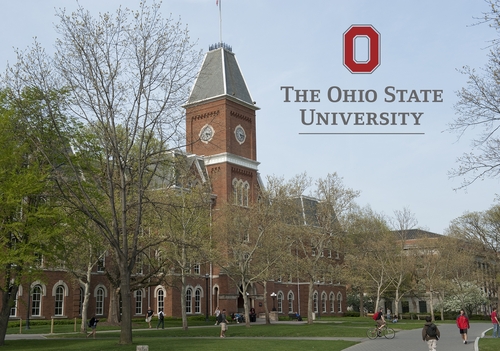
OSU Joins New Biotech Rights Consortium
Ohio State University has joined a new research consortium on biotechnology rights intended to help further the humanitarian spread of patented technology to impoverished countries. In sum, major universities and research institutes are joining together to pledge that they will reserve rights in the licensing of their future patented technology for the use of developing countries or other humanitarian endeavors.
The impetus for this consortium came form the work of Dr. Ingo Potrykus, a researcher at the Swiss Federal institute of Technology who describe his research travails in a recent lecture at Ohio State. Vitamin A deficiency is one of the leading causes of blindness in the developing world. Potrykus and his colleagues discovered a method of transplanting a gene to make vitamin A into rice plants, the main food grain for a large part of the world, which traditionally does not make the vitamin. This so called “golden rice,” named for the color of its grains, has the potential of supplying vitamin A to large numbers of people who have no other access.
In its development, Potrykus described his frustration at the multiple permissions his group needed to obtain to use patented technology, including at some points, his assertion of a right to do research without permission (see related article this issue on “Can Academic ‘Experimental Use’ Survive?”). Only after running into severe regulatory and public relations roadblocks to their use of genetically modified foods, particularly in Europe, were major companies willing to grant the needed licenses. Often, companies were not specifically opposed to Potrykus’ work, only fearful that relaxing their grip on licenses might have adverse effects on other commercial projects.
The consortium, now called the Public-Sector Intellectual Property Resource for Agriculture, hopes to create a set of best practices for universities to follow in licensing their developing technologies to private industry. The traditional licensing away of all rights deprives universities of allowing humanitarian use, which Potrykus broadly defined as cooperative uses with no partners standing to make financial gain. The consortium plans to concentrate on subsistence crops grown in Third World countries and specialty crops grown in industrial nations that are too small in scope to interest large agricultural companies. From a pragmatic view, some commentators also believe that the move is also intended to forestall broad attacks on international patent systems by developing countries. The universities, including Ohio State, are inviting other major plant research facilities to join the consortium.
